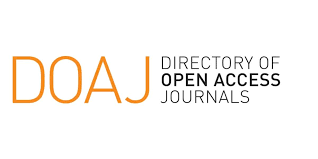Theoretical contribution of Mary Parker Follett to administrative and organizational sciences
DOI:
https://doi.org/10.36881/ma.v1i2.725Keywords:
constructive conflict, circular response, power with, rationalist-idealist, humanism, administrative sciences, organizational sciencesAbstract
The purpose of this article is to highlight the validity of the theoretical contribution of Mary Parker Follett (1868-1933) to the administrative and organizational sciences, in a historical context marked by the economic depression and her struggle to find an academic space at the University of Harvard and the annex for the academic training of women. His interest in psychology and philosophy, through the influence of William James, are considered contributions to conflict resolution and management in a democratic climate, marked by respect for human beings, their integrity and the effort to achieve a decent work environment. Within the theoretical principles that this important researcher contributes to administrative sciences and other disciplines of the social sciences, three of them stand out: constructive conflict, circular response and "power with". An epistemological analysis of her theoretical contribution is incorporated to explain the rationalist-idealist tendency in the theoretical production of her legacy, which contributes to the analysis of the author's contribution. It seeks to verify, with a rationalist methodological orientation, the important contribution of this researcher, often ignored, in contexts of the human sciences.
Downloads
References
Balaguer Planas, A. (2014). Historia de la mujer en psicología; Mary Parker Follett. Memorias de trabajo final de grado. Universidad de Baleares. https://dspace.uib.es/xmlui/bitstream/handle/11201/1009/Balaguer_Planas_Agueda_TFG.pdf?sequence=1&isAllowed=y
Bertalanffy, L. V. (1989). Teoría general de los sistemas. Fondo de Cultura Económica.
Cajal, A. (2021). Mary Parker Follett. https://www.lifeder.com/mary-parker-follet/.
Claudes, G, J. y Álvarez, L. (2005). Historia del pensamiento administrativo. Pearson Educación.
Denda, E; Paolini, N. y Tirachini, B. (2016). Tres mujeres en la administración: Lillian Moller Gilbert, Mary Parker Follett y Joan Woodwar. Revista de Ciencias Administrativas, 7, 57-65. https://www.redalyc.org/journal/5116/511652569008/html/
Domínguez Bilbao, R. y García Dauder, S. (2005). Conflicto constructivo e integración en la obra de Mary Parker Follett. Athenea Digital, 7, 1-28. https://www.raco.cat/index.php/Athenea/article/viewFile/34185/34024
Echevarría Gamarra, C. (2017). El Conocimiento en Ciencias Administrativas a partir de Enfoques Epistemológicos. [Tesis doctoral], Universidad Nacional Experimental Simón Rodríguez, UNESR. Repositorio institucional UNESR.
López de Lacoiste, E. (2009). Crack, 1929: Causas, desarrollo y consecuencias. Revista Internacional del Mundo Económico y del derecho, I, 1-16. http://www.revistainternacionaldelmundoeconomicoydelderecho.net/wp-content/uploads/CRACK-DE-1929-Causas-desarrollo-y-consecuencias.pdf
Melé, D. y Rosanas, J. (2003). "Power, Freedom and Authority in Management: Mary Parker Follett's 'Power-With'" ("Poder, libertad y autoridad en la dirección empresarial: el 'poder compartido' de Mary Parker Follett") https://www.researchgate.net/publication/284612646_Power_Freedom_and_Authority_in_Management
Méndez Quintero, E. (2000). El desarrollo de la ciencia. Un enfoque epistemológico. Espacio Abierto, 9(4), 505-534. https://produccioncientificaluz.org/index.php/espacio/article/view/1985
Padrón Guillén, J. (2014). Notas sobre enfoques epistemológicos, estilos de pensamiento y paradigmas. Proyecto de Epistemología en DVD. Doctorado en Ciencias Humanas. Universidad del Zulia. https://doi.org/10.13140/RG.2.2.22714.08642
Padrón Guillén, J. (2016). Un modelo de variabilidad de la investigación científica. Modelo VIC. José Padrón Guillén- versión 2016. Doctorado en Ciencias Humanas, Universidad del Zulia. http://padron.entretemas.com.ve/TeoriaInvest-2016/
Padrón Guillén, J. (2020). Teoría y Tecnología de la Investigación. En Casanova Romero, I., Paredes Chacín, I., y Naranjo Toro, M. (Coords). Formación de Investigadores en Contextos Universitarios. Universidad Técnica del Norte. https://www.researchgate.net/publication/342124024_Formacion_de_Investigadores_en_el_contexto_universitario
Padrón Martínez, C. (2017). La teoría de Mary Parker Follett: ¿una obra en el olvido? En: Gestión y Estrategia, 52. 7-14. https://gestionyestrategia.azc.uam.mx/index.php/rge/article/view/619
Pérez, A. y Guzmán, M. (2015). Los estudios organizacionales como programa de investigación Cinta de Moebio, 53, 104-123. http://dx.doi.org/10.4067/S0717-554X2015000200001
Sánchez Moreno, A. (2015). El efecto positivo del talento humano en la industria moderna con base en la teoría de Mary Parker Follett. Universidad de la Salle. https://ciencia.lasalle.edu.co/administracion_de_empresas/550
Published
How to Cite
Issue
Section
License

This work is licensed under a Creative Commons Attribution 4.0 International License.
The content of the publications is the responsibility of the authors. The journal allows authors to maintain copyright on published articles and documents. The license used is Commons Attribution-NonCommercial International License. CC BY NC

















